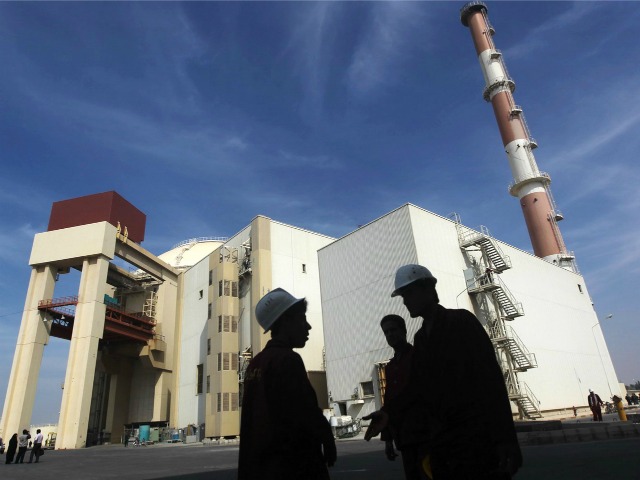Quiet allegations of Iranian cheating on its interim nuclear agreement are fueling speculation in the Israeli press that Israel may be preparing to launch a pre-emptive strike against Iranian nuclear facilities, reports the Algemeiner.
The official position from Washington has been reflected in Secretary of State John Kerry’s assertions that Iran has so far adhered to the November 2013 Joint Plan of Action nuclear agreement, which bound Iran to suspend certain work at its Arak heavy-water reactor designed to produce plutonium. “Iran has held up its end of the bargain,” Kerry said last month in Vienna while announcing a seven-month extension to the P5+1 nuclear talks.
However, according to journalist Colum Lynch writing in Foreign Policy, Washington has quietly accused Iran of going on “an international shopping spree” to acquire the necessary components for the Arak heavy-water reactor to produce nuclear weapons-grade plutonium. Lynch said that the White House has so far not publicly acknowledged its displeasure with the Iranians.
Separate research by the Institute for Science and International Security also documents a possible Iranian violation of its commitment to freeze its centrifuge research and development program under the “Joint Plan of Action” (JPOA) agreed in Geneva last November. Restrictions on centrifuge R&D were tightened under the recent extension of the JPOA.
In the context of these allegations, Israeli website NRG speculates that should Prime Minister Benjamin Netanyahu hang on and be re-elected in March 2015, he will face a dilemma of whether to strike at Iran in June, one month before the currently extended deadline for an agreement.
Such a decision will be especially difficult because the Obama administration, looking to Iran for a foreign policy legacy, is unlikely to give support to military action. However, many American-allied Arab states, including Egypt and Saudi Arabia, are also alarmed at the prospect of a nuclear Iran, and thus are not pleased with the American-led negotiations and deadline extensions.
Besides military action, increased sanctions may also come onto play as a result of Iranian violations. Former Mossad official Haim Tomer said that the period leading up to the current July deadline is the best time to increase sanctions on Iran, and not to reduce them. “The sanctions are being very effective, especially because of the drop in oil prices, and the economic collapse of Iran will force Iran to give up her dream,” Tomer said.
Commenting on the revelations of Iranian cheating, Rep. Ed Royce (R-CA), Chairman of the House Foreign Affairs Committee, called the Iranian regime “a determined cheater, showing no willingness to accept an effective verification regime.” Royce criticized the administration’s optimism in the face of Iran’s “deceit and intransigence.” He added, “Iran is not addressing our fundamental verification and enrichment concerns. It is well beyond time for more sanctions pressure.”
Update: A previous version of this article contained an inaccurate description of the conclusions of the Institute for Science and International Security.

COMMENTS
Please let us know if you're having issues with commenting.